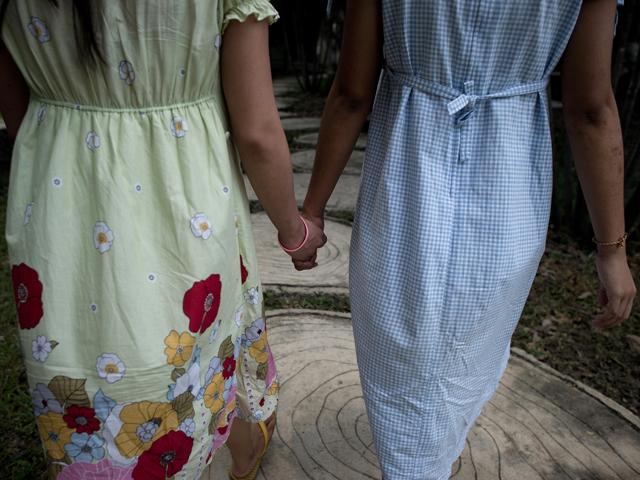Gov’t, families urged to teach children about reproductive health
STOP ADOLESCENT PREGNANCIES Published March 1, 2024 4:48pm With an upsurge in pregnancies among children aged 10-14 in the Philippines, an organization has urged the government and families to collaborate in educating children about their rights and reproductive health. In a press release, Save the Children Philippines called upon the government to prioritize comprehensive access […]


STOP ADOLESCENT PREGNANCIES
With an upsurge in pregnancies among children aged 10-14 in the Philippines, an organization has urged the government and families to collaborate in educating children about their rights and reproductive health.
In a press release, Save the Children Philippines called upon the government to prioritize comprehensive access to sexual and reproductive health information and services.
It also urged the executive branch to conduct massive awareness-raising campaigns and strengthen health systems to ensure children’s safety and well-being.
“Additionally, we encourage parents to engage in open and healthy conversations with their children about sexuality and reproductive health to empower them to make informed choices,” Save the Children’s Technical Adviser for Adolescent Sexual and Reproductive Health and Rights Shebana Alqaseer said.
The group aims to raise awareness of early and unwanted pregnancies among very young girls as International Women’s Day approaches.
It noted that in 2022, the Philippine Statistics Authority (PSA) reported 3,135 cases of adolescent pregnancies among young girls, up 35% from 2,320 in 2021.
“PSA has noted a concerning upward trend in teenage pregnancies under the age of 15 since 2017. Since then, the Philippines continues to have one of the highest teenage pregnancy rates in Asia,” it said.
Currently, the organization is helping mothers and caregivers learn to communicate with adolescent children on lessons of sexuality and reproductive health through the Healthy, Empowered, and Responsible Teens or “HEART to Heart” program implemented nationwide.
Among those they assisted was Josie, mother of an 11-year-old girl from Eastern Visayas who suffered maltreatment from her landlord’s teenage son.
“Looking back, I realize the significance of equipping my children with the tools to understand consent and fostering open dialogue. Had I participated in the HEART to Heart program sooner, I could have better supported and empowered Maria through her ordeal,” she said.
Josie’s story underscored the need for proactive parental engagement and community programming to ensure adolescent girls’ well-being and resilience.
The organization also sponsored Positive Parenting courses as part of the ADDVOICE project, which Josie participated in.
Save the Children Philippines also stressed that the rising prevalence of adolescent pregnancy, which is now regarded as a national problem, cannot be traced to a single cause; rather, it is the result of a combination of biological, social, and cultural factors.
Among the factors that contributed to adolescent sexuality and reproductive health issues were:
- Early sexual debut,
- Limited access to comprehensive sex information and education,
- Inadequate communication skills among parents, whom adolescents identify as one of their preferred sources of information regarding sexual reproductive health,
- Lack of access to family planning services,
- Cultural practices that encourage early union, and
- Absence of adolescent sexuality and reproductive health (ASRH) policies and its full-implementation.
—Sherylin Untalan/AOL, GMA Integrated News














